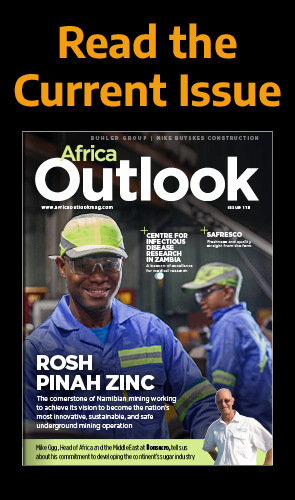A growing consumer middle-class, powered by rapid urbanisation and shifting demographic trends is driving both property demand and growth opportunities in the real estate industry across the African continent, according to Standard Bank.
A growing consumer middle-class, powered by rapid urbanisation and shifting demographic trends is driving both property demand and growth opportunities in the real estate industry across the African continent, says Standard Bank.
“Increasingly, both foreign and local investors are seeing the growth potential of Africa, spurred by rising consumer spending of Africa’s developing middle class”, said Gerhard Zeelie, Head of Real Estate Finance (Rest of Africa) for Standard Bank. “Economic growth and ongoing investments in infrastructure are opening up previously inaccessible markets.”
Some of the key African countries that are realising opportunities for real estate investment include Nigeria, Ghana, Kenya, Mozambique and Zambia. Although lower commodity prices had impacted on growth forecasts for some of these countries, there is still a shortage of quality real estate assets, Zeelie noted.
However, real estate investments in African markets are not without risk, Mr Zeelie warned. Among which were the impact of unpredictable regulatory changes, complex legal regimes, volatile local currencies, and limitations on investment timeframes and exit strategies.
In particular, regulatory uncertainty precipitated by the ever-shifting policy environment is impacting negatively on investor sentiment, he detailed: “It creates a climate of risk aversion, with some investors reluctant to commit themselves to developments with long planning horizons. Instead they hedge their bets by adopting wait-and-see approaches.”
Yet, despite these risks, many investors and developers were taking a long-term view to a market’s macro-economic outlook, rather than viewing short-term cyclical shocks in isolation.
However, investing in Africa is by no means a one-size approach, each market has its own specific dynamics and opportunities, he said.
“Investors must remember that the continent is not a single, homogenous jurisdiction. Investors often make the mistake of regarding Africa as a uniform landscape but it’s critical to identify the countries and sectors that offer the best opportunities and match them with their own expertise.”
A key factor to consider is the long-term sustainability of generating foreign currency returns in markets which are experiencing increasing commercial and regulatory pressures to move to local currency economies.
Nonetheless, in a number of markets across Africa, demand for high-quality retail, office and residential space continue to outstrip supply, he said. International and local developers are looking to increase their exposure across markets in Africa, and for opportunities to establish a strong retail foothold in cities where little or no formal retail existed.
“We are seeing the scale of developments growing rapidly, with increasing participation from local developers who are seeing and starting to capitalise on opportunities in this space,” Mr Zeelie summarised.































